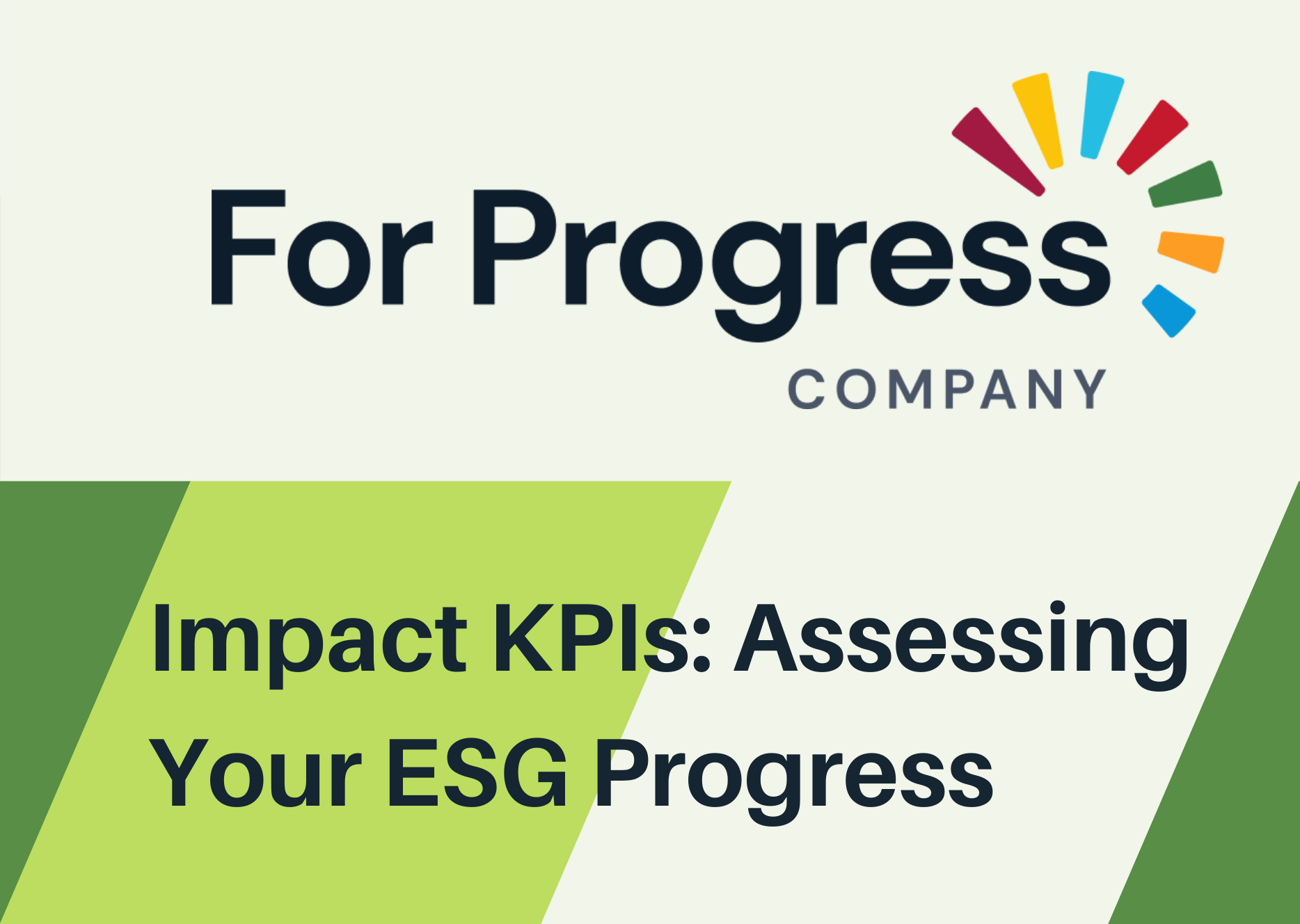
In the previous part eight of this series on Making Impact Work for Startups, we discussed how and why to share your impact journey—this post is part nine. To see the entire playbook with a full background on using Founder Institute's For Progress impact metrics framework, we recommend you start at part one.
If you're an impact startup founder, enter your 1-minute pitch video at PitchForProgress.com by May 28th for a chance to pitch live to impact investors in the July online Demo Day event + win prizes!
Background
As a For Progress company, you are now tracking and publishing your progress via public impact Key Performance Indicator(s). The second-to-last recommendation we want to share with you in this playbook is to remember to engage with that progress. We know how easy it can be, if you to commit yourself to something not vital to the ongoing function of your company, for it to simply slip to the back of your mind. But all that effort you put into getting your impact initiative off the ground will be lost is you do not keep checking in on its health and nurturing it.
So give your iKPIs the same respect and time as you would to any other business-vital KPI. Celebrate the wins and talk about the fails. Because if an iKPI does not appear alive, growing and adapting over time, people inside and outside your organization will lose interest, and the initiative will peter out.
Action Points
Set yourself regular check-ins to assess the progress being made on all your iKPIs, as you would other business metrics. This can be every month, every week, or every quarter - depending on how frequently your updates come in. If your goals are not being met, then you should ideally have a brain trust of key people behind your impact initiative, from all areas and levels of the company, who can help generate better approaches to the iKPI goals.
Then, you must put these new ideas into action: test and iterate on your various proposed solutions, and measure any improvements in your iKPI performance - make the adjustments that maximize your desired outcomes.
Case Study Example: TAGCarts
- TAGCarts (FI Sacramento) has been on a mission to redesign the medical cart since its founding in 2019, including hospital medical and workstation carts. The company is a perfect case study of a direct impact company that assessed its progress and then pivoted to meet the needs of the market, while staying true to delivering on its social impact.
- When Covid-19 hit in full force and the shortage of PPE had suddenly become a global crisis, TAGCarts responded by pivoting and creating single-patient-use bedside carts, designed specifically to supply frontline healthcare workers, keeping nurses and other medical professionals safe.
- As reported locally in AZ Family, Hundreds of so-called ‘HEROCarts’ were donated to Arizona frontline workers. This pivoting story is one of a founder reacting not just to meet a new industry need, but also developing a solution aligned with the company’s existing mission, that created an immediate and outsized social impact.
In the next and final post in this series on Implementing iKPIs and making impact work for startups, we will discuss the importance of celebrating your successes, and those of your peers—because each step along your impact journey is progress that matters.
Making Impact Work for Startups: the iKPI Playbook
In 2015, the UN released 17 Sustainable Development Goals (SDGs), an urgent call for governments, businesses, and organizations to align efforts towards “a shared blueprint for peace and prosperity for people and the planet.” As business leaders, it is past time to assume our share of this indispensable responsibility. We cannot rely solely on governments and large organizations to act without our support.
The biggest problems of humanity can and must be solved by entrepreneurs, who are currently the most effective catalysts for change in the world. We are therefore calling on entrepreneurs to form “Impact Companies” that address SDGs such as eradicating extreme poverty, ending world hunger, and achieving gender equality. To be successful, we believe entrepreneurs should weave sustainability into a concept we all understand - KPIs. That’s why we’ve come up with “impact” KPIs, or iKPIs.
The Founder Institute has put together a free Progress Planner tool to search and generate iKPIs, as well as a playbook for startup founders to work towards becoming an Impact Company through realistic, trackable steps. To help guide entrepreneurs, we will provide supporting resources, including practical iKPI recommendations, real-life applications and metrics, and example case studies, through 10 key steps - this post is #8 in that 10-part series.
The Founder Institute believes we cannot rely solely on governments and big organizations to fix the world's problems - the time is now for entrepreneurs to also do their part.
Use our free For Progress planner to search iKPIs (Impact Key Performance Indicators) by keyword, or browse iKPIs by the 17 UN Sustainable Development Goals. Don't be intimidated by seemingly impossible impact metrics - instead, find specific SDGs that your business can positively influence.
Try the Progress Planner tool at FI.co/Progress, or learn more startup impact initiatives across the FI global network at FI.co/Impact.



